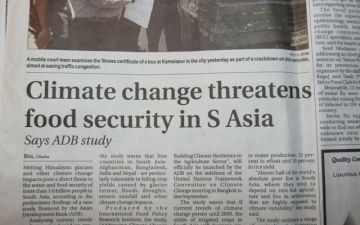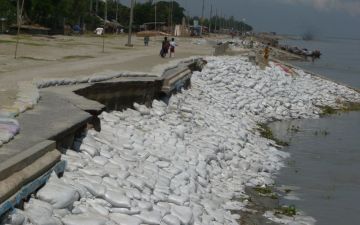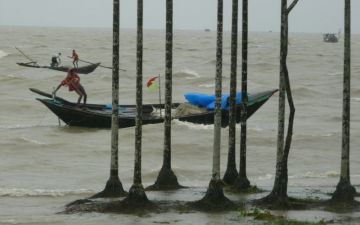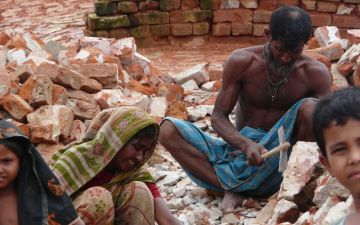Bangladesh: Climate Change is a Hot Story Here
Climate change is front page news in Bangladesh on a near-daily basis, and the English-language newspaper The Daily Star is averaging two to three articles per day on the subject. As Bangladeshi Prime Minister Sheikh Hasina traveled to Geneva this week to attend the World Climate Conference-3, coverage has focused on her trip. But there is also a sense in Bangladesh that climate change is putting the country on the international map, so to speak, and Bangladeshis are very much interested in getting that recognition.




